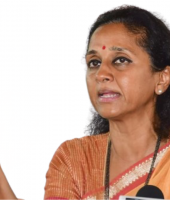Guterres urges disarmament now as nuclear risk reaches ‘highest point in decades’
Almost 80 years after the incineration of the Japanese cities of Hiroshima and Nagasaki, nuclear weapons still represent a clear and present danger to global peace and security, UN Secretary-General António Guterres told the Security Council on Monday.
Calling for disarmament now, he urged States with nuclear arsenals to lead the way across six areas for action that include dialogue and accountability.
“Nuclear weapons are the most destructive weapons ever invented, capable of eliminating all life on earth. Today, these weapons are growing in power, range and stealth. An accidental launch is one mistake, one miscalculation, one rash act away,” he warned.
Doomsday Clock ticking loudly
The meeting on nuclear disarmament and non-proliferation was convened by Japan, Security Council president for March and, as Mr. Guterres noted, the only country that knows better than any other "the brutal cost of nuclear carnage."
It was being held at a time “when geopolitical tensions and mistrust have escalated the risk of nuclear warfare to its highest point in decades.”
He said the Doomsday Clock – the symbol for humanity’s proximity to self-destruction - “is ticking loudly enough for all to hear”.
Meanwhile, academics and civil society groups, to Pope Francis, youth, and the survivors of Hiroshima and Nagasaki, known as Hibakusha, have been clamouring for peace and an end to the existential threat.
No ‘Oppenheimer’ sequel
Even the Oscar-winning Hollywood film Oppenheimer “brought the harsh reality of nuclear doomsday to vivid life for millions around the world,” he said, adding that “humanity cannot survive a sequel”.
Despite these appeals for the world to step back from the brink, “States possessing nuclear weapons are absent from the table of dialogue,” he said, while “investments in the tools of war are outstripping investments in the tools of peace.”
Mr. Guterres stressed that disarmament is the only path to “vanquish this senseless and suicidal shadow, once and for all.”
Dialogue and confidence-building
He appealed to States armed with nuclear weapons to take the lead in six areas, starting with re-engaging in dialogue to develop transparency and confidence-building measures to prevent any use of a nuclear weapon.
“Second, nuclear saber-rattling must stop,” he said. “Threats to use nuclear weapons in any capacity are unacceptable.”
Nuclear weapon States must also re-affirm moratoria on nuclear testing, which includes pledging to avoid actions that would undermine the 1996 Comprehensive Nuclear-Test-Ban Treaty (CTBT), whose entry-into-force must be priority.
From commitment to action
Furthermore, disarmament commitments must become action, together with accountability, under the Treaty on the Non-Proliferation of Nuclear Weapons (NPT). The landmark accord, signed more than 50 years ago, is the only binding commitment to the goal of disarmament by States which officially stockpile nuclear weapons.
The Secretary-General also highlighted the need for a joint first-use agreement. “Nuclear weapon States must urgently agree that none of them will be the first to use nuclear weapons. As a matter of fact, none should use them in any circumstances,” he said.
Reducing stockpiles
Finally, he called for reductions in the number of nuclear weapons. In this regard, he urged the United States and Russia - the world’s largest nuclear weapons holders - to take the lead and also find a way back to negotiations towards the full implementation of the New START Treaty and agree on its successor.
Mr. Guterres also pointed to the responsibility of non-nuclear weapon States to fulfil their own non-proliferation obligations and to support disarmament efforts.
He said the Security Council also has a leadership role, including “to look beyond today’s divisions, and state clearly that living with the existential threat of nuclear weapons is unacceptable.”












Comment List